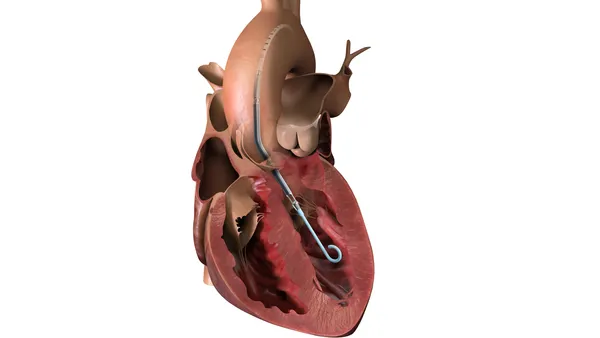Dive Brief:
- FDA has written to healthcare providers to highlight the risk of major complications if cardiac perforation occurs when implanting leadless pacemakers.
- The letter was informed by reports of 90 deaths associated with Medtronic's Micra leadless pacemaker and evidence that suggests cardiac perforations linked to the technology are more likely to be associated with serious complications than those caused by traditional pacemakers. Medtronic in a statement said FDA's letter is "consistent with the training and education programs and Instructions for Use (IFUs) we've previously provided to physicians, and we support the important reminders provided in the letter."
- FDA is advising healthcare professionals to discuss the benefit-risk profile of leadless pacing systems compared to the alternatives and be prepared to manage cardiac perforation during implantation. The agency's letter to providers comes ahead of its decision on Abbott's rival leadless pacemaker product.
Dive Insight:
Cardiac perforation is a risk when implanting any pacemaker. Based on the available evidence, FDA said the overall risk of cardiac perforation appears to be similar for leadless and traditional pacing systems. However, there is clinical and real-world evidence that suggests cardiac perforations linked to leadless pacemakers are associated with more severe outcomes.
FDA said Medtronic's premarket clinical studies "suggested major complications related to cardiac perforation appeared to be more severe for patients who received a leadless pacing system compared to patients who received a transvenous pacemaker."
Real-world evidence has reinforced that suggestion, FDA said, with leadless pacemakers more likely to be associated with complications such as cardiac blockages and death. FDA has received more than 300 medical device reports for Micra that describe perforation since approving the device in 2016. More than 90 of the reports of perforations resulted in death.
FDA, which acknowledged the limitations of the real-world data, is working with Medtronic to assess outcomes after cardiac perforation and to "identify potential contributing factors and mitigation measures." The agency is also evaluating whether the product labeling adequately addresses the issue. FDA is asking users to carefully follow the instructions for use and report any adverse events.
"As stated in the FDA's letter, rates of major complications have remained stable over time," Medtronic said in a statement. "We will continue to partner with the FDA to ensure that physicians have accurate, clinically-actionable information to make informed decisions regarding patient care."
Medtronic recently announced that more than 100,000 patients have received a Micra device worldwide. During a May earnings call, CEO Geoff Martha said the company's cardiac rhythm management business is "now at the highest share level in more than a decade" driven by the Micra leadless pacemaker which rose 74%, annualizing near $400 million.
Micra is currently the only leadless pacemaker approved for use in the U.S. Abbott entered the space through the acquisition of St. Jude Medical but its Nanostim leadless pacemaker had problems and is no longer available.
Abbott is now working to re-enter the market, recently reporting results from a pivotal trial of a leadless pacemaker that is now being evaluated for FDA approval. No reports of cardiac perforation are listed in the brief write up of results from the 198-subject clinical trial. Three patients suffered cardiac blockages, and there were the same number of premature deployments.












